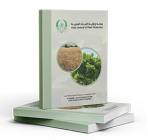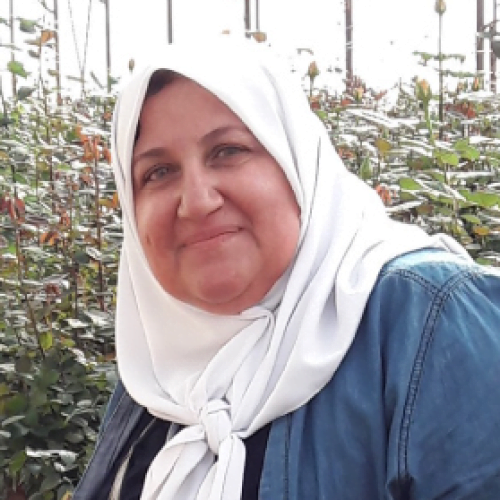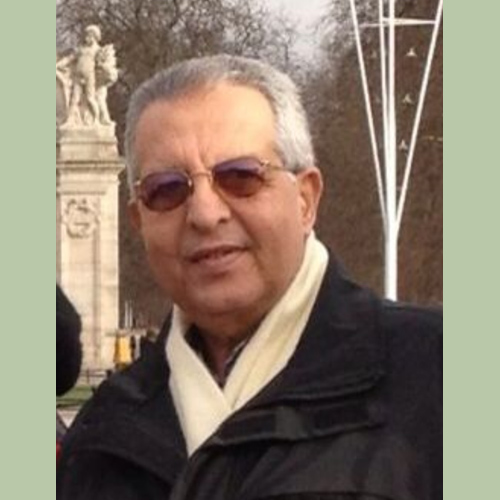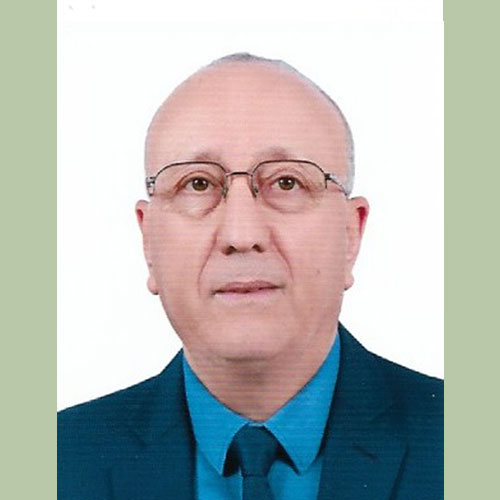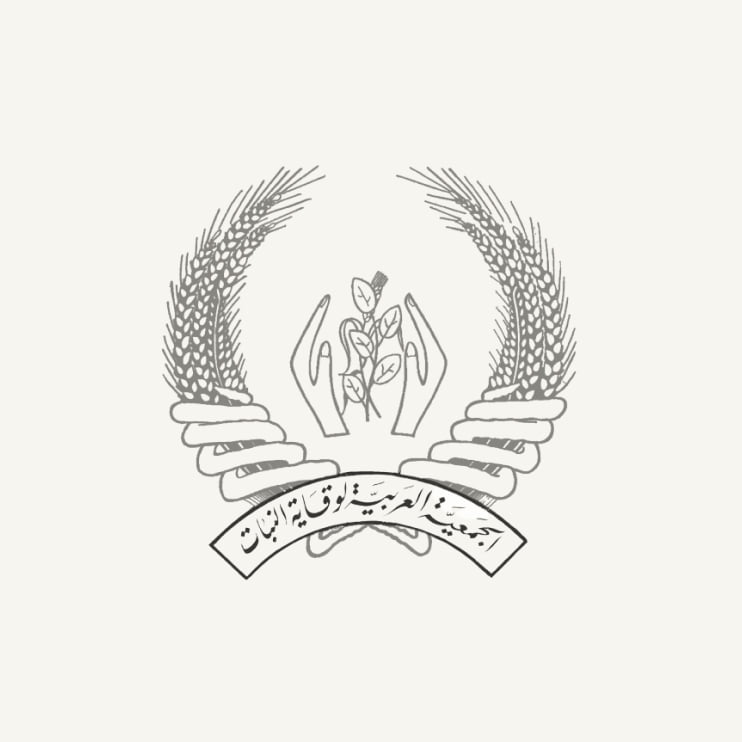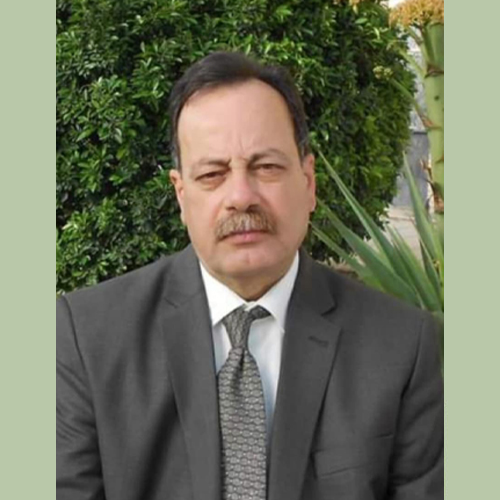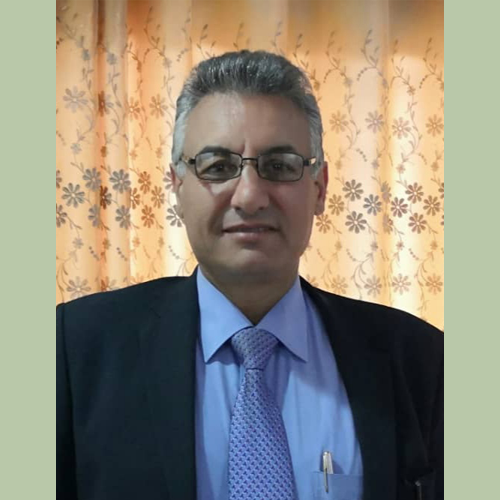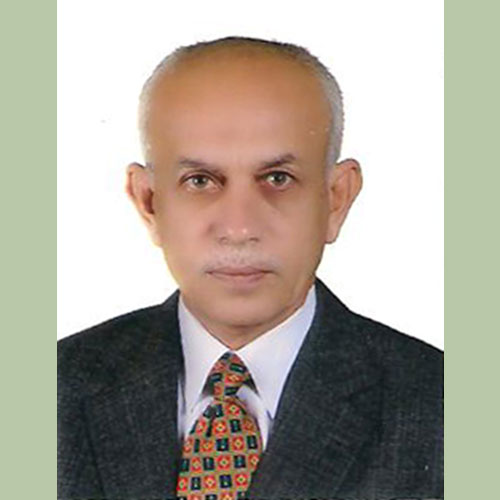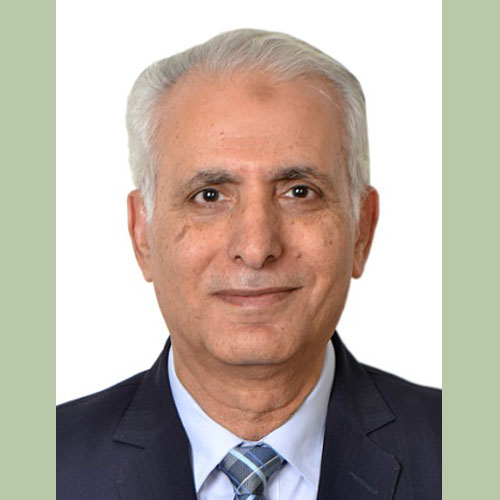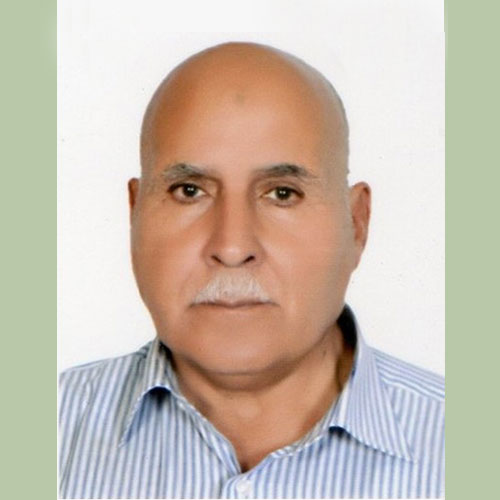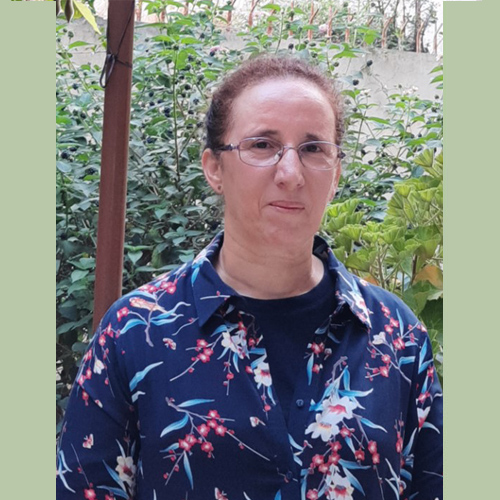Welcome to Arab Journal of Plant Protection

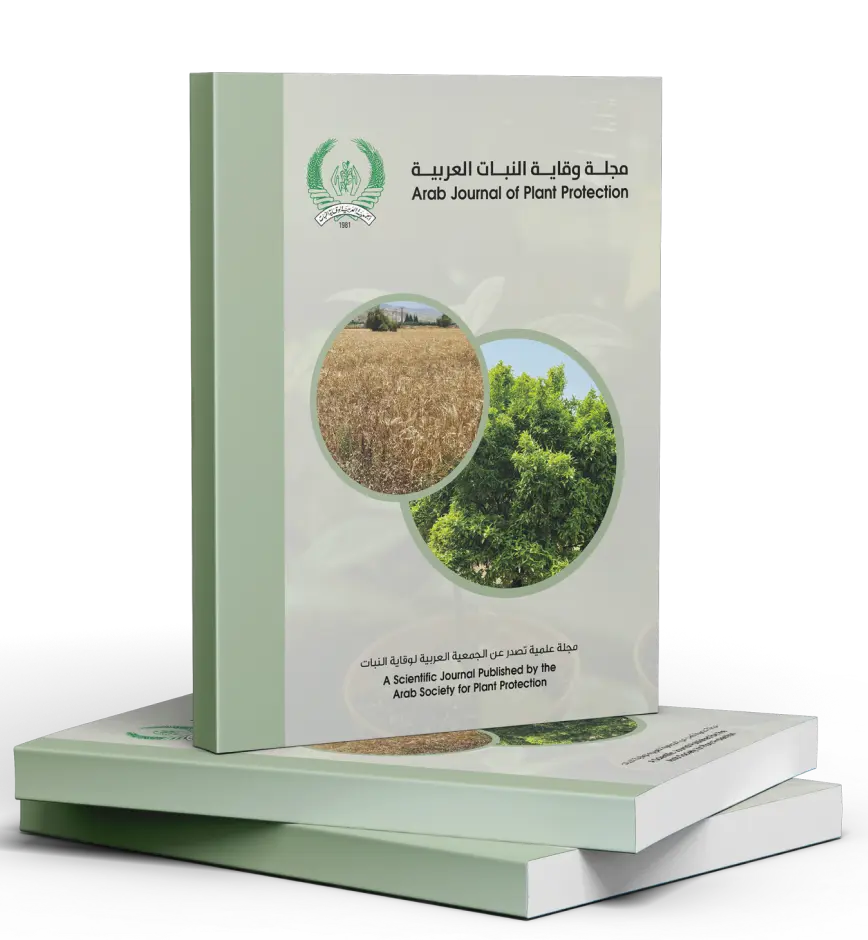
About AJPP
The Arab Journal of Plant Protection is an open access journal included in CABI, AGRIS and Google Scholar data bases and indexed by Scopus. The journal’s aim is the promotion of plant health for crops grown in the Arab and Near East region and for safe food production and transfer of new knowledge on plant pests and their sustainable management. The journal deals with all scientific.
Current Issue
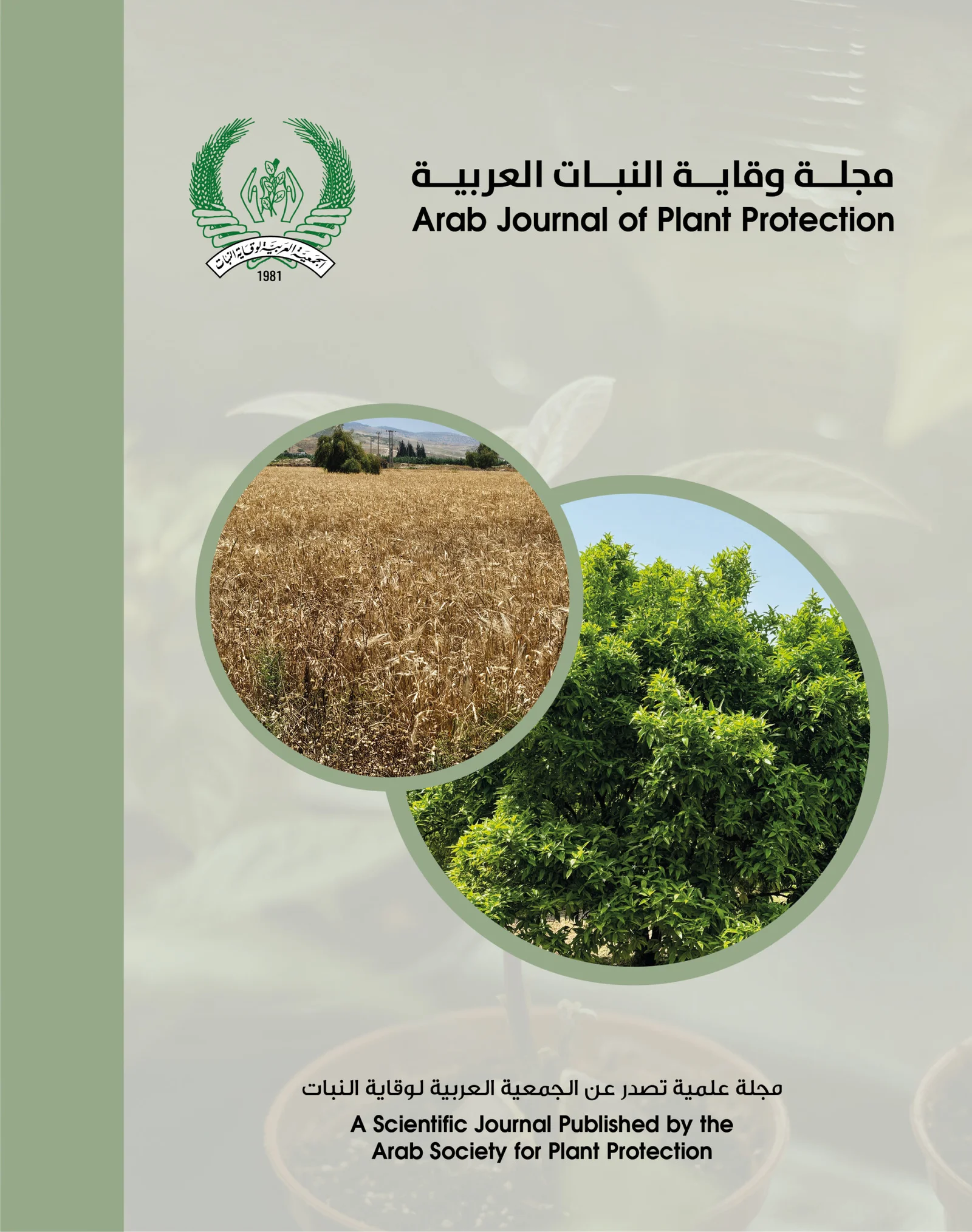
Apr 14
Volume 43, Issue 1, March 2025
Laboratory Study of Some Biological Parameters and Life Table of Opuntia Cochineal Scale Insect, Dactylopius opuntiae in Syria ...
Read more
Upcoming Events
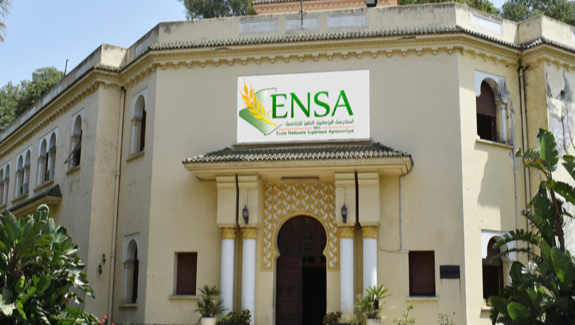
Apr 27, 2025
14th ACPP, Algeria, 2025
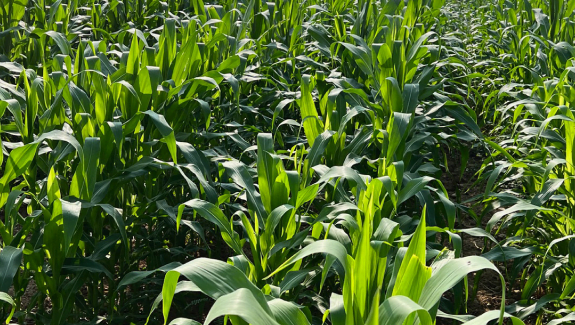
Apr 27, 2026
National Conference on Agri
Our Editorial Board
Dr. Safaa G.Kumari - Associate Editor
International Center for Agricultural Research in the Dry Areas (ICARDA) Terbol Station Beqa’a-Zahle-LEBANON CURRICULUM VITAE (2024) ...
View Profile
Dr. Khaled M. Makkouk - Editor-in-chief
National Council for Scientific Research (CNRS) Khaled M. Makkouk short biography Makkouk received his B. Sc. ...
View Profile
Dr. Nader Y. Asaad - Arab Language Editor
Administration of Plant Protection General Commission for Scientific Agricultural Research (GCSAR) SYRIA
View Profile
Ibrahim Al-Jboory - Iraq
Faculty of Agriculture Baghdad University Ibrahim Jaddoa Al-Jboory: BSc in Plant Protection (1976), MSc in Entomology ...
View Profile
Ahmed El-Heneidy - Giza, Egypt
Plant Protection Research Institute, Agriculture Research Center
View Profile
Ahmed Katbeh Bader - Amman, Jordan
Faculty of Agriculture, University of Jordan He is currently a Professor of Insect Taxonomy and Curator ...
View Profile
Bouzid Nasraoui - Tunisia
INAT, University of Carthage Prof. Bouzid Nasraoui Years of Experience 44 Biography Prof. ...
View Profile
Toufic Mustafa - Amman, Jordan
Faculty of Agriculture, University of Jordan
View Profile
Mohamed Taweel - Syria
Faculty of Agriculture, Tishreen University
View Profile
Nabil Abou Kaf - Syria
Faculty of Agriculture, Tishreen University
View Profile
Hadi Mahdi Abboud - Baghdad, Iraq
Ministry of Science and Technology, Agriculture Research Center
View Profile
Nizar El-Mallah - Iraq
Faculty of Agriculture and Forestry, University of Mosel
View Profile
Imad Ismail - Lattakia, Syria
Tishreen University
View Profile
Walid Nafaa - Syria
University of Damascus
View Profile
Emad El-Maaroof - Iraq
Faculty of Agricultural Sciences, Sulaymaniya University Prof./ Dr. Emad M. Al-Maaroof Dr. Emad Al-Maaroof, Professor ...
View Profile
Abdul-Sattar Arif. Ali - Iraq
Anbar University Dr.(Prof.) Abdul-Sattar Arif. Ali Born: Hit, Al – Anbar, September 21, 1947, Married, Three ...
View Profile
Mohamed Amer Fayadh - Iraq
Basra University .Dr. Mohammed Amer Fayyadh . Date of Birth:- 1/7/1955 place of Birth:- Basrah/Iraq Scientific ...
View Profile
Mohamed Said El-Zemeity - Egypt
Faculty of Agriculture, Ain Shams University MOHAMED EL-SAID EL-ZEMAITY Giza, Egypt | 6th of October | ...
View Profile
Raied Abou Kubaa - UC Davis
UC Davis Raied Abou Kubaa Researcher in Plant Pathology, Department of Plant Pathology, Foundation Plant Services, ...
View Profile
Elia Choueiri - Tel Amara, Lebanon
Agriculture Research Institute Elia Choueiri earned his B.Sc. degree in agricultural engineering from ESIAM-USJ in 1990, ...
View Profile
Khalifa Dabaj - Libya
University of Tripoli CURRICULUAM VITAE Name: Khalifa H. Dabaj –Date and Place of Birth: 01/01/ 1951Al-.Khoms ...
View Profile
Mohamed Habib Ben Jamaa - Tunisia
Directorate of Plant Health and Agricultural Inputs Since 2023, Mohamed Habib BEN JAMÂA has been working ...
View Profile
Houda Bouraghda - El-Harrash, Algeria
National High School of Agriculture Houda Boureghda Name: Houda Boureghda Position: Professor of Phytopathology Currently the ...
View Profile
A NOTE TO AUTHORS
The Arab Journal of Plant Protection (AJPP) is published by the Arab Society for Plant Protection since 1983. It was published as hard copy twice per year (June and December) from 1983 until 2012. Starting in 2013, AJPP is published only electronically three times per year, in April, August and December. The journal covers all disciplines related to plant protection. Submitting an article to AJPP means that the author did not submit the same manuscript to any other scientific journal in any language.
The ethical aspect of publishing is extremely important to insure the continuous participation of scientists in the region and globally. Unfortunately, the peer-review process does not always permit to uncover acts of plagiarism and academic misconduct. Therefore, a mechanism for early detection of plagiarism is being worked out. When detected, the redundant manuscript is withdrawn from the publication process and actions are taken to inform both authors and their respective institutions. Authors are encouraged to abide with international scientific research ethics code of conduct.
The ethical aspect of publishing is extremely important to insure the continuous participation of scientists in the region and globally. Unfortunately, the peer-review process does not always permit to uncover acts of plagiarism and academic misconduct. Therefore, a mechanism for early detection of plagiarism is being worked out. When detected, the redundant manuscript is withdrawn from the publication process and actions are taken to inform both authors and their respective institutions. Authors are encouraged to abide with international scientific research ethics code of conduct.

